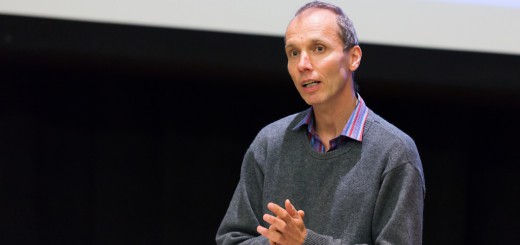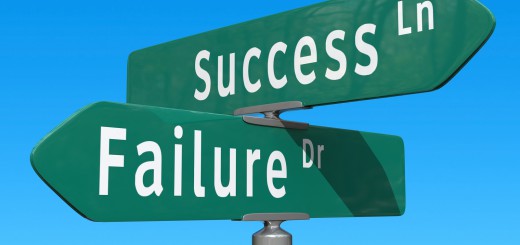The Internet Party is up and running. Here are three reasons why it might succeed:
1. Resources
Where: Albany Street in Dunedin, just along from the now closed Captain Cook Tavern.When: A wet Monday afternoon in June. What: an Internet Party activist pasting posters to the wall of an alley way – two doors down from the electorate office of the Labour MP for Dunedin North, David Clark.
The scene I witnessed is probably one being replicated somewhere around New Zealand at this minute. It is a reminder of how resources matter to any political party, and that they come in various guises. Money, but also people and above all activist enthusiasm are crucial if a party, particularly a new one, is going to break through and convince voters that it is worth giving them a chance.
By any measure, the speed at which the Internet Party gained the 500 members it needed was extraordinary – with the total being met within just 7 hours in late March. It is unknown how many members the party currently has, but if its membership growth has continued at a similar rate, it possibly already has more members than any other party outside Labour or National.
Of course, the ease and novelty of joining the party – through a smartphone app – may have had something to do with this, and members should not necessarily be equated with activists. But for the Internet Party, the attraction of members will not so much be their financial wherewithal, but their boots on the ground and the hoped-for ‘buzz’ that their involvement will generate through word-of-mouth.
The money aspect of the Internet Party is an issue that has been well traversed. Kim Dotcom has been reported as gifting $3m for the election campaign – more than the total amount officially spent by National in 2011, when it was the most electorally successful party.
Certainly, money is very important in an election campaign – although it is of course no guarantee of durable success. Two useful comparisons might be made with previously new parties formed on the right of New Zealand politics – the Conservative Party and, in the 1990s, the Act Party.
At the equivalent stage in its founding year, in 1995, Act employed no fewer than ten full-time staff. It spent the most ($1,653,169) of any party on its inaugural election campaign. This investment was repaid in the form of 6.1% of the party vote and 8 seats in Parliament – a result that the Internet Party would probably be delighted with (although it fell well short of Act’s highly ambitious goals at the time).
While Act’s money came from wealthy backers more in the shadows, the Conservative Party offers an interesting parallel for the Internet Party as it has been largely self-funded by its leader, Colin Craig. In 2011, Craig spent $1.6 million of his own personal fortune to try and get his party and himself into parliament. This time around, he is reported to be planning on spending a similar amount.
2. Leadership credibility
Leaders have never been more important for a political party. The ‘presidentialisation’ of New Zealand politics is now such that for the casual voter, the leader is arguably more than the face of the party, he or she is the party. For a reminder of how John Key was central to National’s 2011 election campaign, it is worth watching again a Campbell Live piece from the time, which shows how his face almost overshadowed National’s own branding on the party’s campaign bus. Imagine how National might be polling if Bill English or Steven Joyce were the leader, rather than John Key. On the left, it is rare for a week to go by without blaming David Cunliffe for the party’s poor performance – before him, it was David Shearer.
Where does the Internet Party fit in? The party has a rich, seemingly charismatic founder in Kim Dotcom, someone whose enormous wealth appears to be surprisingly endearing for many voters. A comparison could be made with John Key, whose wealthy status was the target of largely fruitless attacks by Labour from the outset (as symbolised by former Minister of Finance Michael Cullen’s ‘that rich prick’ comment) and which has surprisingly been more of an asset than a liability. Dotcom is also playing on his status as an outsider and an ‘underdog’ who is fighting the ‘Establishment’. His credibility has now been enhanced by a victory in court – not in his own extradition case, but in the trial of John Banks for knowingly filing a false electoral return. The judge in the case, Justice Wylie, found Dotcom ‘reliable’ and ‘credible’. (Read the judgment).
Of course, the view of Dotcom as some kind of folk-hero is highly debatable. But the truth is somewhat irrelevant to his party leadership. Dotcom does not need to convince 100% or even 10% of voters that the party for which he is the standard-bearer is worth voting for – even 2 or 3% would do. Above all, it is Dotcom’s omnipresence in the news media which brings his party oxygen, visibility and credibility – something that no amount of paid advertising can buy.
But hold on – Dotcom is not the leader of the Internet Party. Should we not be focusing on Laila Harre, its recently unveiled, handpicked leader? If we do, we will find a seasoned political operator who is at home in the media and on the campaign trail. Harre still enjoys a stock of credibility with mainly older voters, built up over many years as an MP and activist. For younger voters, her biggest asset is likely to be a distinct lack of propensity to make gaffes and fumbles on the campaign trail. The missteps of novice political leaders such as Don Brash or David Shearer are unlikely to be repeated by Harre – simply because she is not a novice. This ‘safe pair of hands’ status is arguably worth much more than any other quality. The ‘new’ and ‘fresh’ aspect which is needed for an upstart political movement is more than comfortably supplied by Kim Dotcom, who will remain the party’s figurehead.
3. Populist frontage
Who likes the internet? Who does not? If this seems the wrong question to be asking, then you have the genius of the name ‘Internet Party’. Barring an ever-smaller subgroup of voters, the internet is simply ‘there’. It is something we use every day, but not something most voters think much about. It is simple, ostensibly neutral and unlikely to ruffle the feathers of voters on its own, in the way that calling the party the ‘Left Party’ or the ‘Civil Liberties Party’ might have done. The internet is what political scientists would call a ‘valence’ issue – something that all voters broadly agree on – rather than a positional one. Calling a party the ‘Internet Party’ is akin to calling a party an ‘Education Party’.
In effect, the Internet Party name was and still largely is a blank canvas, on to which voters can project their own views. Before Harre was unveiled as the party’s leader, it seemed unclear as to what direction the party would even take. Was it going to be another incarnation of a Pirate Party, the geek-friendly civil liberties movement which has seen some limited success (but mostly failure) in Europe? Now, the party has unveiled some limited policies which have a leftwing bent to them – the abolition of student fees being perhaps the most prominent. But the Internet Party is more likely to be a market-driven, rather than Marx-driven vehicle.
The party’s chameleon status will place in it a good position to function as the 2014 election’s ‘populist’ party. Populism is hard to define, but at its heart is playing on an underdog status and saying what voters want to hear. In New Zealand politics, the populist mantle has been held by various parties in recent times, usually on the right. In 1996, it was New Zealand First, which managed to whip a storm about immigration, among other issues. New Zealand First won 13% of the vote. In 2002, Peter Dunne’s ‘common sense’ mantra in a TV debate saw it come away with almost 7% of all party votes cast. Is the time right for a new populist vehicle? Given the blandness of the mainstream options on offer in the political cafeteria, perhaps it is. Aside from The Civilian Party, the Internet Party will be also the natural home of a protest vote.
Next post: Three reasons why the Internet Party might not be successful
Homepage photo credit: cheetah100 / Foter / Creative Commons Attribution 2.0 Generic (CC BY 2.0)

